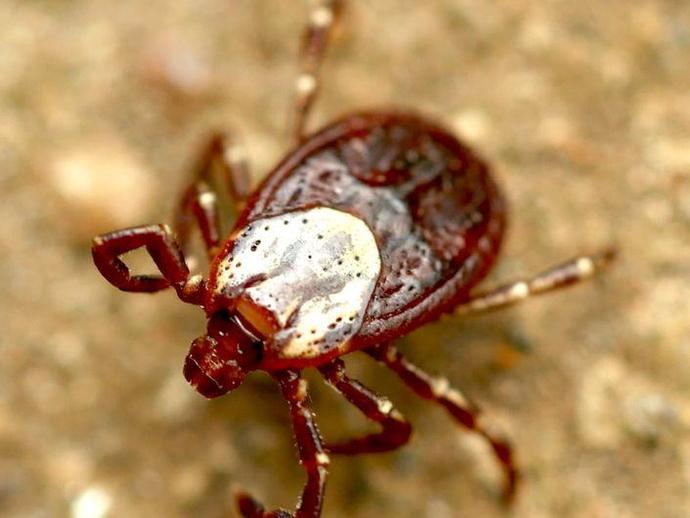July 20, 2021
Ben here with another edition of #BenInNature presented by our friends at Carter Bank & Trust!
The subject of today's nature post ain't gonna win any popularity contests. It's Dermacentor variabilis, the American dog tick!
I'll be honest, even I have a hard time mustering much enthusiasm for ticks, and I'm a guy who has described multiple species of spiders as "beautiful." Still, ticks do have their benefits, believe it or not. They serve as a food source for reptiles, amphibians, birds, and other animals (opossums LOVE eating ticks). They also help control wild animal populations. Scientists even use them as an indicator that an ecosystem is stable and healthy. Ticks do serve a purpose, but I'm not going to be the one to arrange a ticker-tape parade.
The American dog tick can be found in the eastern half of the U.S., although it has been introduced on the west coast. If you find a tick attached to you, this is probably the one you want to find; unlike the deer tick (Ixodes scapularis), dog ticks are not competent vectors for Lyme disease and they are not known to trigger the alpha-gal allergy that causes an allergic reaction to red meat. However, they can be carriers for Rocky Mountain spotted fever and tularemia, so it's still best to be careful.
Also, if you feel like you've seen a lot more ticks this year than last year, you're right; according to an article I read recently, tick populations are up about 30 percent this summer. The theory is that last year was a "mast year," meaning that nut-producing trees produced more nuts than usual. When mast years occur, it benefits mammals that eat nuts, which leads to more small mammals running through the woods, which leads to more ticks.
If you spend a lot of time outdoors and you'd like to avoid ticks, I highly recommend picking up a spray containing permethrin. Unlike most bug sprays, you never spray permethrin directly on your skin; instead, you spray it on your clothes and let it dry for about 24 hours before wearing them. If a tick lands on your permethrin-treated clothes, it will drop right off. It's definitely been a life-saver for me!
ABOUT #BenInNature
Social distancing can be difficult, but it presents a great opportunity to become reacquainted with nature. In this series of posts, Administrator of Science Ben Williams ventures outdoors to record a snapshot of the unique sights that can be found in the natural world. New updates are posted Monday - Friday, with previous posts highlighted on the weekends. This series of posts is made possible thanks to the support of VMNH Corporate Partner Carter Bank & Trust (www.cbtcares.com).
NATURE PHOTO IDENTIFICATIONS
If you discover something in nature that you would like help identifying, be sure to message us right here on Facebook with a picture (please include location and date of picture) and we'll have our experts help you identify it!

 Hours & Admissions
Hours & Admissions Directions
Directions

